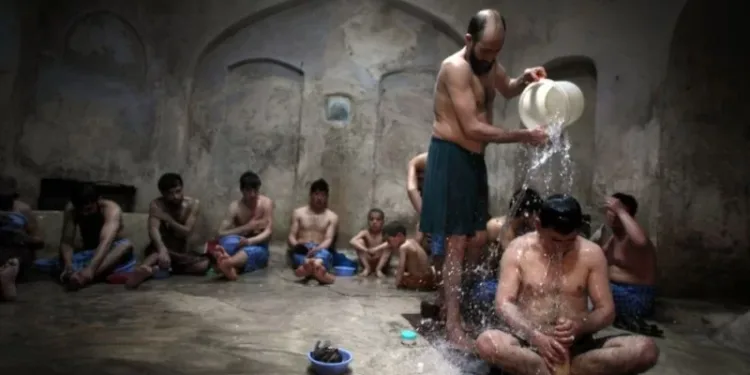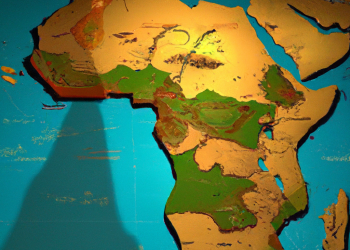Years-long drought has forced Morocco to make a delicate decision to reduce the opening hours of the public baths to save enough water for the citizens.
Morocco invites a diverse group of individuals, including shopkeepers, students, bankers, and retirees, to experience the communal atmosphere of Hammam El Majd, a public bath on the outskirts of the nation’s capital, Rabat.
For a modest fee, tourists indulge in the soothing steam, enjoying a communal space where they are scrubbed and rinsed by friends and neighbours.
For years, the public baths known as hammams have been integral to Moroccan life, providing a timeless space for communal relaxation.
These traditional establishments, steeped in Arabic culture, embrace individuals of all social classes, fostering a sense of unity and shared experience. Within the domed chambers of these hammams, men and women come together to unwind.
The atmosphere is characterized by stone slabs beneath mosaic tiles, where bathers engage in the ritual of lathering with traditional black soap and cleansing under the soothing cascade of scalding water poured from plastic buckets.
Lately, the North African nation has become a casualty of the drought that has lasted for six years which might bring a gradual end to this fun activity. Cities across the Northern African regions are also experiencing drought and employed similar control measures of reducing the opening of their public bath to save water.
Also Read: Senegal Now Has Election Date after Protests
In recent times, Morocco has faced water challenges due to reduced rainfall and rising temperatures, causing a decline in the water levels of major reservoirs. This has led to concerns among farmers and communities heavily reliant on these water sources, prompting the country to confront the impacts of climate change and prolonged drought.
As part of water conservation efforts, the government has implemented restrictions affecting various businesses, including hammams and car washes.
However, this decision has sparked discontent among some segments of the population. Critics argue that the government’s approach seems to favour certain sectors, as restrictions do not extend to more upscale establishments such as hotels, pools, spas, and the agriculture industry, which is the largest consumer of water in Morocco.
The debate describes the complex challenges of managing water resources amid environmental changes and the need for equitable solutions.
Opposing the new implementation, A member of Morocco’s House of Representatives, Fatima Zahra Bata while speaking to the Interior Minister Abdelouafi Laftit said,
“This measure does not seem to be of great benefit, especially since the (hammam) sector is not considered one of the sectors that consumes the most water. Even when it’s open Thursday to Sunday, most of the clients avoid coming because they are afraid it’s full of people.”
She also asked why officials in many municipalities made exceptions for spas, which are typically used by wealthier people and tourists, emphasizing that the new measure poses a great financial disadvantage to the recreational centres that earn less.
The recent closures of hammams, and traditional public baths, have reverberated through Morocco, impacting approximately 200,000 individuals who are directly or indirectly employed in this sector.
These closures, prompted by the country’s efforts to conserve water resources, have raised concerns among the populace. It is noteworthy that the hammam industry constitutes about 2% of Morocco’s total water consumption, as indicated by data from the National Statistics Agency.
The closures have been enforced in various cities, including Casablanca, Tangier, and Beni Mellal, following directives from the interior minister urging local officials to implement water-saving measures.
The decision comes amid challenging circumstances, with high prices of heating gas and dropping temperatures. In particular, residents of towns situated high in the Atlas Mountains express apprehension, as hammams traditionally serve as essential spaces for warmth during colder weather.
The intricate interplay between water conservation efforts, economic considerations, and the social impact of closures underscores the multifaceted challenges Morocco faces in managing its water resources.
The ongoing dialogue surrounding these measures highlights the necessity of finding a delicate balance that addresses both environmental concerns and the well-being of the affected communities.










